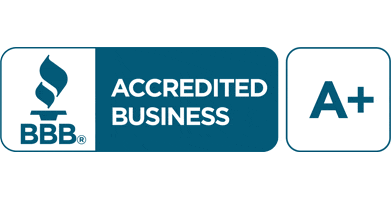Atlantis Plumbing - the Georgia Rooter service to call.
About Clogged Drains And Homeowner Tips
A clogged drain or sewer is an inconvenience at best and at worst can resulting in flooding, property damage and become a heath hazard. Knowing the signs and symptoms of a clogged drain, and what to do about it, can keep a minor problem from turning into a nightmare.
Symptoms of Clogged Drains
The most obvious symptom of clogged drains are odors and backed-up or slow-moving water. Some examples include:
- A rotten smell coming from the kitchen sink or garbage disposal.
- Mysterious puddles on the floor around a sink, tub or shower stall.
- Gurgling sounds coming from drains, especially immediately after running the dishwasher or washing machine.
- Slow-draining water in a sink, tub or other fixture may indicate a clog, even without water backing up from the drain.
- Water in the toilet bowl gurgles or bubbles when water is run down the bathroom sink.
- Water backs up out of a drain, pools around the drain or drains slowly.
Causes of Clogged Drains
Drains become clogged when organic and inorganic materials and other objects become lodged in the pipes. Even plant and tree roots can cause problems.
Over time, hair can build up inside a trap or drain pipe. Most often hair clogs will slow down the speed at which the water drains, but will usually not completely stop the flow. Hair clogs can happen suddenly, if a large amount of hair goes down the drain at once, or can build up slowly over time. The hair will typically become caught on any rough surface on the inside of the pipe and clump up. A plunger may often times clear a hair the clog.
Certain kinds of food that do not readily break down when wet, like fruits and vegetables, are a drain clog waiting to happen. This is typically problem with kitchen-sink drains that aren't equipped with food strainers. Food clogs are also a common problem when items a garbage disposal was not intended to handle, like banana peels, are put down the drain.
Buildup can occur on the inside walls of the pipe from both minerals in the water and soap scum. As the buildup continues to grow, water flow will become increasingly restricted and may eventually stop altogether. Mineral buildup in the plumbing can especially be a problem in areas that have hard water, if the home does not have a water-treatment system.
Symptoms Of Clogged Sewers
Because it is the one line that drains the waste water for the entire plumbing system, a clogged sewer line will result in every drain and toilet in the building backing up. Signs of a clogged sewer line are the same as a clogged drain. However, symptoms of a clogged sewer line will be present throughout the entire building, instead of at just one isolated location. Here are three warning signs of a clogged sewer line:
- Multiple drains in different rooms such as toilets, sinks, showers, and tubs with backed-up water or producing gurgling sounds when draining.
- Water backs up in unusual places, such in the washing machine or dishwasher, after draining the bathtub, shower or kitchen sink. A toilet that won't flush, has a rising water level or makes a gurgling sound after running water in the sink or tub is a good indication of a clogged sewer line.
- Water seepage around the sewer clean out. Many homeowners may not even know what a sewer clean out is, let alone know where to find it. Typically, the sewer clean out is a section of large pipe outside the home with a threaded plug that allows access to the sewer line. As the name implies, the clean out is specifically designed to access the main section of sewer pipe so clogs can be removed. The clean out is usually located on the side of the building, however, some older home built before the 1970s may not have a sewer clean out. A sewer-line clog can be confirmed by unscrewing the plug; if water is standing in the pipe, or comes flowing out, a clog is present.
Causes of Clogged Sewers
One of the two main causes of clogged sewer lines is some type of foreign object that has been dropped down a drain, or more commonly a toilet. Things that plumbers have found in a clogged sewer lines include toys, tools and stuffed animals. These objects typically become lodged where the line takes some type of right-angled turn. This types of clogs usually has to be removed with some form of snake-type tool.
The second of the two main causes of sewer-line clogs are tree roots. In most municipalities, over half of the tree roots that invade sewer lines enter through compromised lateral sewer pipes, meaning the sewer line that runs from a home or business to the municipal sewer main. Tree roots are attracted to the pipes by water vapor escaping through hairline cracks and loose joints in the lines. The tiny root tips then find their way into the sewer lines through these cracks or joints. This is most common in areas that have older sewer system where the pipes are made from some sort of clay material.
Once the sewer line is penetrated, the nutrients in the waste water act as fertilizer and the roots began to grow inside the pipe, even during the winter months when most trees are dormant. Roots will keep growing inside the pipe and literally fill the sewer line with a root root mass that traps waste matter. Once a root mass becomes established it will need to be removed by a trained professional.
Importance of Hiring a Licensed Plumber for Rooter Work
While some plumbing clogs can be handled by a homeowner or handyman, a licensed plumber should be called in to perform rooter services for two reasons, both of which come down to financial liability. First, having someone who is not properly trained to do sewer-line work can cause damage to pipes, resulting in thousands of dollars of repairs. Secondly, because of the potential for damaging sewer lines, many areas have laws prohibiting unlicensed plumbers from performing major repairs, with some states imposing stiff fines. Also, an unlicensed worker will typically not have worker's compensation insurance, so if the worker is injured while working on your property you could be liable for the medical bills.
Drain and Sewer-Inspection Cameras
Drain- and sewer-inspection cameras are attached to a flexible fiber-optic cable and snaked down into the drain or sewer line to both diagnose and pinpoint the location of a problem. Most of these cameras are suited for looking into both narrow drains inside the home as well as large sewer lines. The biggest advantage to using a high-definition inspection camera is being able to getting an accurate image of exactly what is inside the pipes, and the best way to handle even the smallest problem. Inspection cameras can detect severe clogs, cracks, corroded piping, root intrusions, pipe misalignment and bulges in the pipe wall without having to pull the pipes apart or dig up the lines. This can often mean saving hundreds to thousands of dollars in repair costs. An inspection camera is so versatile the only thing it can't do is fix the problems it finds.
Hydro Jetting as an Alternate to Rooter Service
Hydro jetting is a newer technique used by professional-plumbing contractors and has become a popular alternative to rooter service. Hydro jetting involves sending a high pressure water hose with a specially designed nozzle and water jets down into the sewer line to blast away clogs on the inside of the pipes.
Hydro jetting is a more effective way to clear clogs than rooter services. Whereas rooter service will remove 80 to 90 percent of roots. Hydro jetting will scour the inside of the pipes, removing virtually all of the matter and restore water flow in the pipes to like-new conditions. Hydro jetting can remove virtually all types of clogs, however, sometimes pipes with exceptionally severe root intrusion may need to be snaked before hydro jetting.
With rooter services, most homeowners will need their sewer lines cleaned once every year or two. However, hydro jetting is so effective and efficient lines can typically go for several years between cleanings. Because hydro-jetting systems operate at pressures of approximately 4,000 pound per square inch, special training is required in order to operate the equipment without damaging older lines and pipes. As such, hydro jetting should be performed only by a professional plumbing contractor.
We Offer Rooter Service in Metro Atlanta, Including:
Fulton County, Bartow County, Cobb County, Paulding County, Cherokee County, Gwinnett County, and Douglas County.
Acworth GA, Atlanta GA, Austell GA, Cartersville GA, Doraville GA, Douglasville GA, Hiram GA, Kennesaw GA, Lawrenceville GA, Lithia Springs GA, Loganville GA, Mableton GA, Marietta GA, Powder Springs GA, Rockmart GA, Roswell GA, Smyrna GA, Tucker GA, Villa Rica GA, Vinings GA, Woodstock GA, and surrounding communities.




